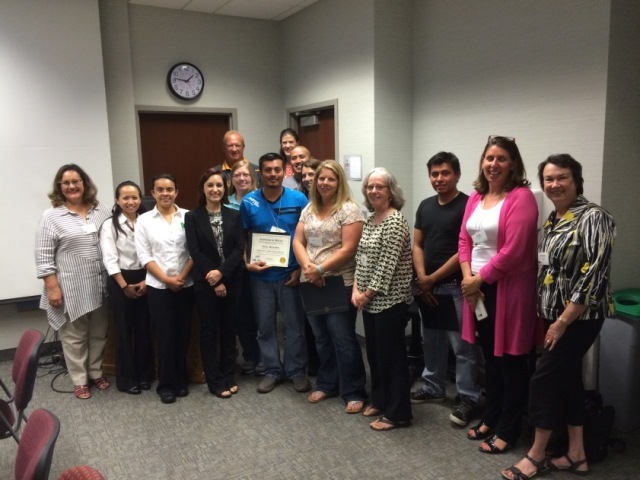This article originally appeared in Pulse.
A five-year project that bridges an important health and safety gap by providing a bilingual program for immigrant dairy workers in Wisconsin has shown a significant increase in knowledge among the workers trained, according to preliminary data.
The Seguridad en las Lecherias (Safety in Dairies) project sought to improve worker safety and health by testing a culturally appropriate occupational intervention to reduce worksite hazards and improve knowledge and practices. An estimated 40-60 percent of Wisconsin’s dairy workforce are Hispanic immigrants, and particularly vulnerable to injury.
NFMC and Migrant Clinicians Network, with support from the National Institute for Occupational Safety and Health (NIOSH)-funded Upper Midwest Agricultural Safety and Health Center, conducted Seguridad.
The project partnered with 68 dairy farms in Wisconsin, training 850 workers and more than 50 community health workers, known as promotores. More than 3,450 hours of training was provided from 2012-15.
“This includes workers employed on the control farms and those on the intervention farms – those who use the community health worker model,” Migrant Clinicians Network’s Amy K. Liebman said. “For our farms piloting the community health worker model, our preliminary analysis suggests both the community health worker and farmer believe the program is having an impact and that they report an important continuity of an emphasis on safety beyond the initial worker training period. We look forward to analyzing the data in full in the coming months.”
The National Farm Medicine Center hosted an appreciation event July 12 to honor dairy producers and workers who participated in the five-year project, which wraps up this fall. The day included workshops, focus groups and a certificate ceremony.
Seguridad partners represented at the event also included the University of Wisconsin-River Falls, Puentes/Bridges, Inc. and the Mexican Consulate of St. Paul, Minnesota.
“It was great to hear from our promotores and producers,” Liebman said. “Our preliminary findings, including the July 12 focus groups, suggest an impressive impact.”
Seguridad has resulted in awards and been the subject of journal articles.
The collaborative efforts in Seguridad led to the groups’ receiving the inaugural Stakeholder Collaboration in Occupational Injury Research Award sponsored by the National Safety Council.
A paper describing the Seguridad intervention model appeared in Journal of Agromedicine in 2014.
A more recent manuscript, “Immigrant dairy workers' perceptions of health and safety on the farm in America's Heartland” in the American Journal of Industrial Medicine, reported on data collected from five focus groups of Hispanic, immigrant dairy workers. Findings indicated that injury management practices ranged from benevolent to threatening, and that immigrant status and fear of deportation influenced injury and hazard reporting.
“It was a privilege to tell their stories,” said Iris Reyes, Seguridad coordinator for NFMC. “This project enabled us to provide valuable services and establish solid relationships with farming communities throughout Wisconsin. I hope that we can build on this foundation long after this project ends.”
The Seguridad collaborating organizations are currently discussing next steps and funding opportunities.

